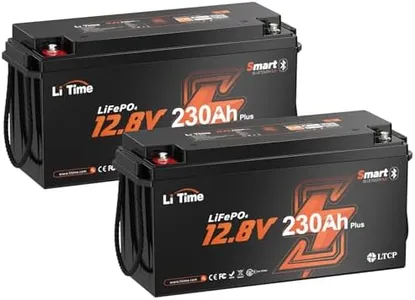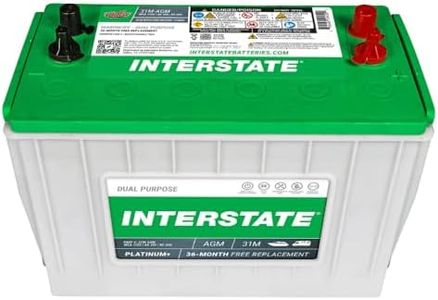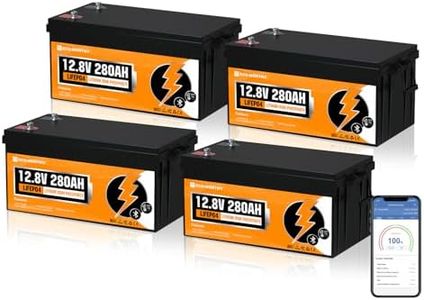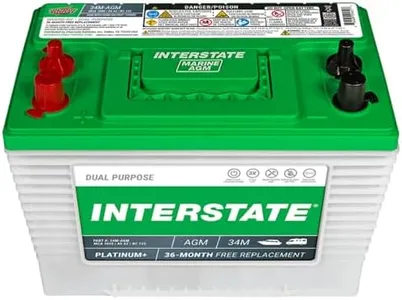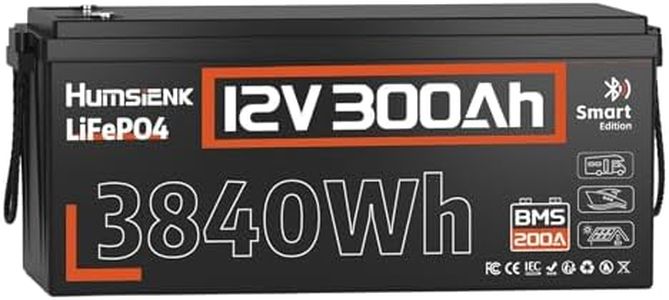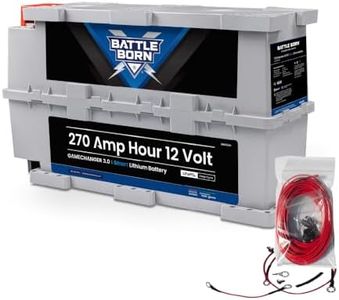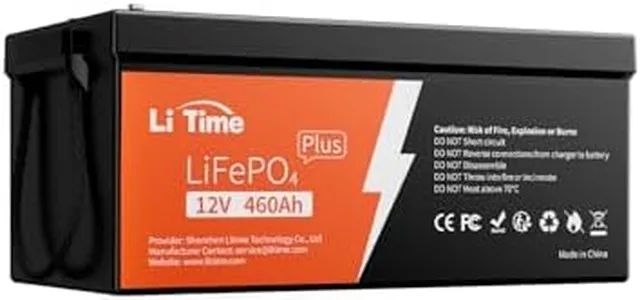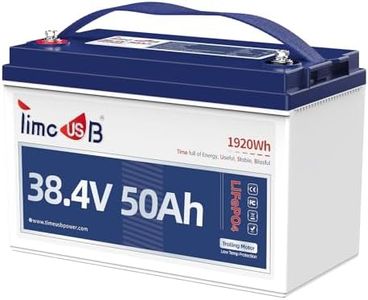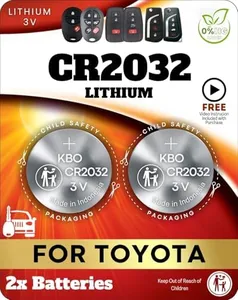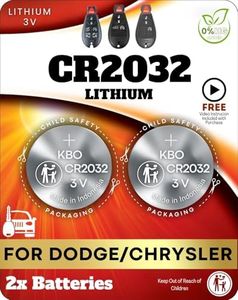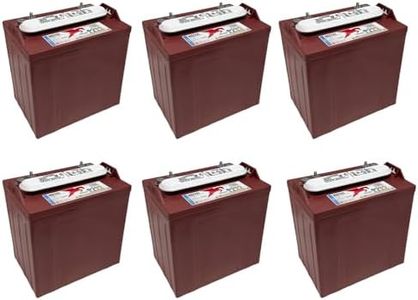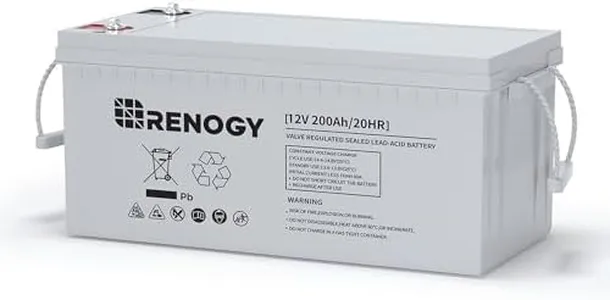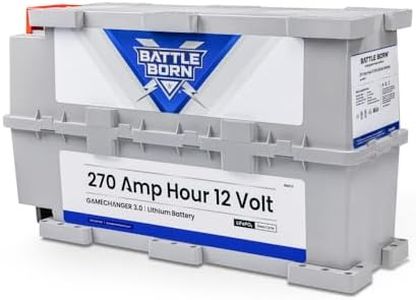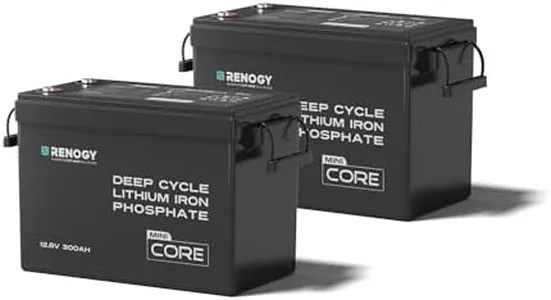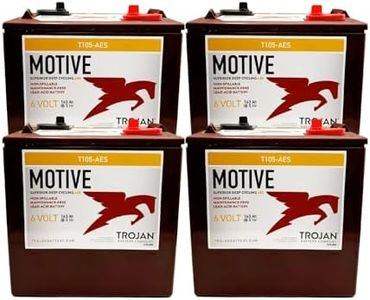10 Best Deep Cycle Rv Batteries 2026 in the United States
Our technology thoroughly searches through the online shopping world, reviewing hundreds of sites. We then process and analyze this information, updating in real-time to bring you the latest top-rated products. This way, you always get the best and most current options available.

Our Top Picks
Winner
Interstate Batteries Marine/RV Battery 12V 100Ah 925CCA (31M-AGM) Dual Purpose Power Pure Lead AGM RV & Marine Starting Replacement Battery (Group Size 31M) Boats, RV's
Most important from
82 reviews
The Interstate Batteries Marine/RV 12V 100Ah (31M-AGM) battery is a solid choice for RV and marine use, especially if you want a reliable dual-purpose battery that can both start your engine and power accessories like lights and water pumps. Its pure lead AGM design is known for lasting significantly longer—about 2 to 3 times the life of traditional AGM or flooded batteries—which means fewer replacements over time. It’s built tough to handle harsh conditions, which is great for outdoor adventures. With 100Ah capacity, it provides a decent amount of energy storage to run your RV’s appliances, though heavier use will drain it faster.
Weighing about 72 pounds and measuring roughly 13 x 7 x 9.5 inches, it’s on the heavier side but typical for deep-cycle marine batteries. The battery also features a high cold cranking amp (925 CCA), so it delivers strong starting power, which is handy if you need to start your engine in cold weather. This battery’s thick plates allow for deep discharges without shortening its lifespan, meaning you can use a good portion of its capacity safely. However, if you need extremely long-lasting power or a very lightweight option, there may be other batteries specialized for those needs.
This Interstate battery is a dependable, well-rounded option for those seeking a battery that can both start an RV or boat and provide steady power for trips.
Most important from
82 reviews
ECO-WORTHY 48V 280Ah (4 Pack 12V 280AH) LiFePO4 Lithium Battery with Bluetooth, Low-Temp Protection, 14.34kWh Energy, for RV, Off-Grid, Solar System, Home Backup, Marine
Most important from
334 reviews
The ECO-WORTHY 48V 280Ah LiFePO4 battery pack (made of 4 individual 12.8V 280Ah batteries) is a strong choice for RV owners and off-grid power users who need reliable, long-lasting energy. With a large capacity of 14.34kWh, it can power your vehicle or solar system for extended periods. Its lithium iron phosphate (LiFePO4) chemistry offers over 6000 deep charge cycles, which means the battery will last many years if properly maintained. The built-in Bluetooth monitoring system is a handy feature, letting you check voltage, capacity, and current easily through a smartphone app, although the Bluetooth connection works best within about 15 meters.
The battery is designed with a sturdy metal frame for impact resistance and includes protections against low temperatures, stopping charging below freezing to avoid damage—this adds reliability in colder environments. It supports flexible setups in series or parallel to match different system voltages and capacities, making it versatile for various power needs. However, the battery pack is quite heavy at 251 pounds, so installation might require some effort.
Charging times are reasonable but not very fast; it takes about 14 hours with a standard 20A charger, or roughly 6 hours using a 600W solar panel. This means you should plan charging around your usage patterns. Size-wise, it’s fairly compact for its capacity but still takes up considerable space typical for high-capacity deep-cycle batteries. ECO-WORTHY’s battery excels in longevity, capacity, and smart features, making it well-suited for RV and off-grid use, while requiring readiness for its weight and longer charging duration.
Most important from
334 reviews
Interstate Batteries Marine/RV Battery 12V 62Ah 800CCA (34M-AGM) Dual Purpose Power Pure Lead AGM RV & Marine Starting Replacement Battery (Group Size 34M) Boats, RV's
The Interstate 12V 62Ah Marine/RV Battery (Group 34M) is a solid choice for RV owners looking for a dual-purpose battery that can handle both starting your vehicle and powering accessories while camping. Its pure lead AGM technology means it offers excellent cycle life—lasting 2 to 3 times longer than many traditional batteries—and it can handle deep discharges better than typical flooded batteries, which is important if you run lights, pumps, or TVs off-grid.
With 62 amp-hours capacity, it provides a decent balance between power storage and weight, though at nearly 48 pounds it’s on the heavier side, so consider space and handling needs. The battery’s thick plates and AGM design also allow faster charging, helping you get back on the road or back to fun more quickly.
While it’s very durable and well-sealed against tough conditions, its 62Ah capacity may feel a bit limited for larger RV setups with high power demands or longer stays without recharging. It is dependable, well-built, and fits well for typical RV users needing reliable starting power combined with moderate deep-cycle capability.
